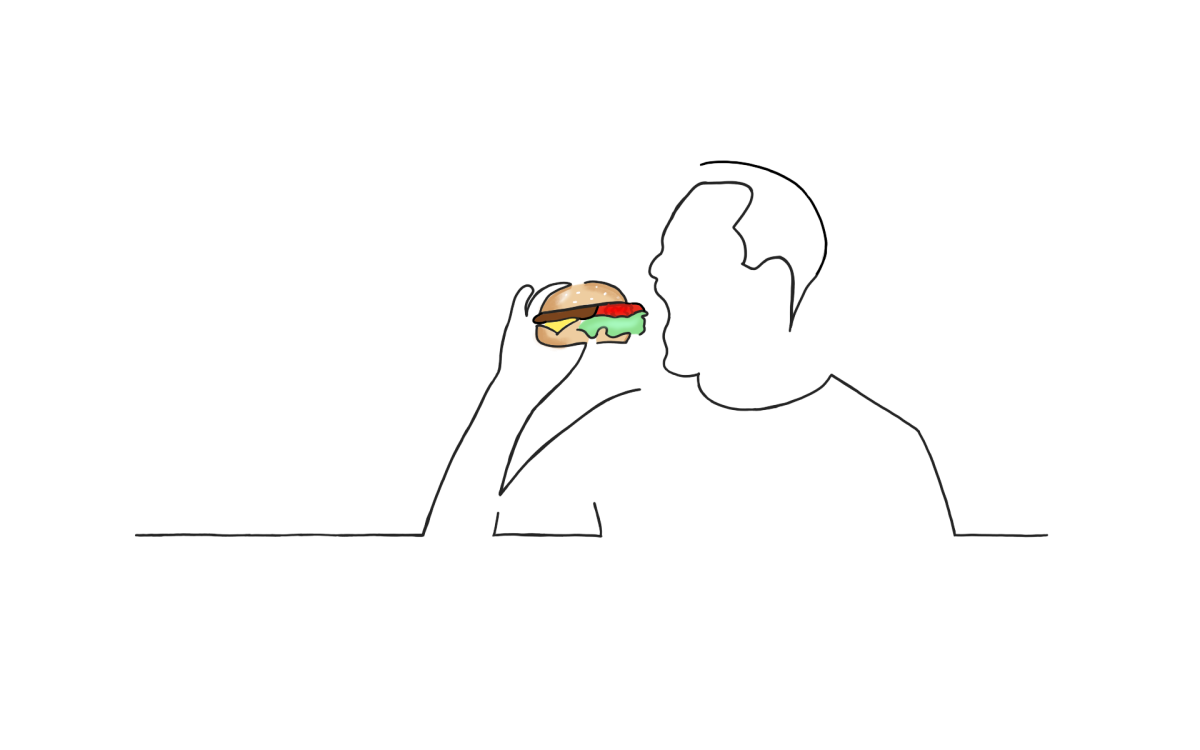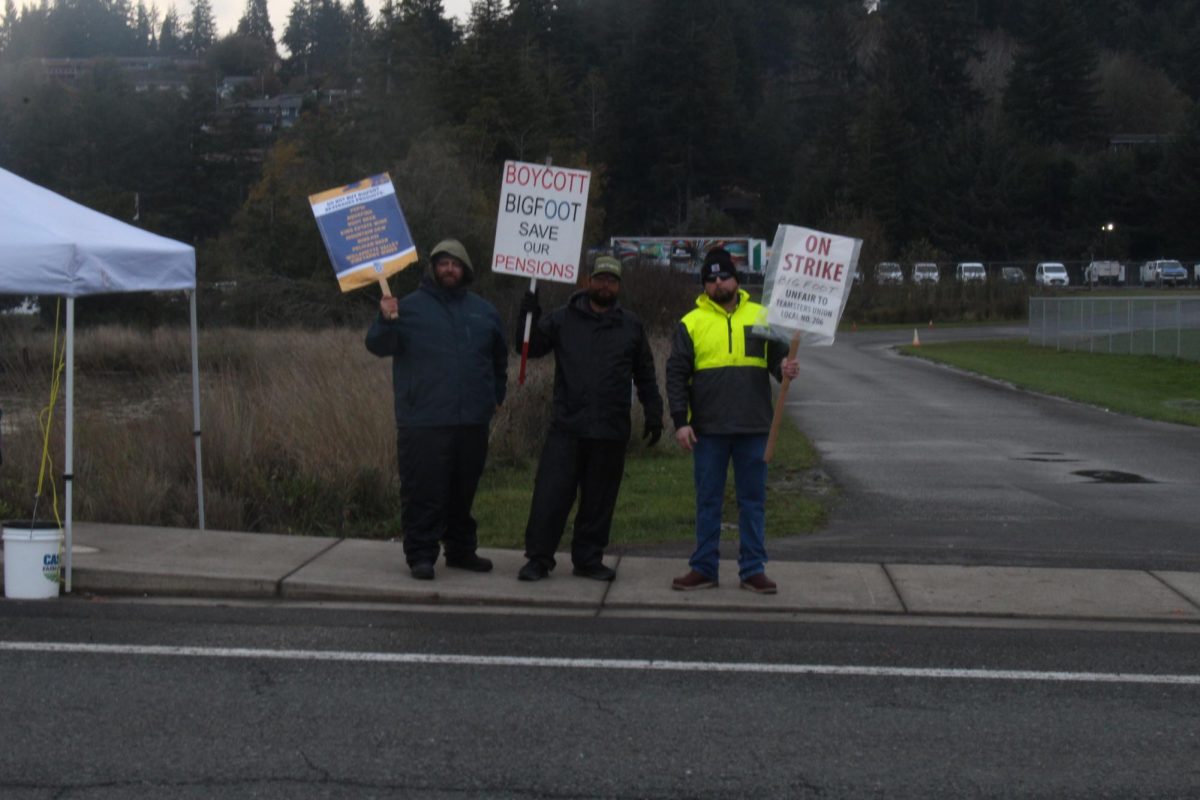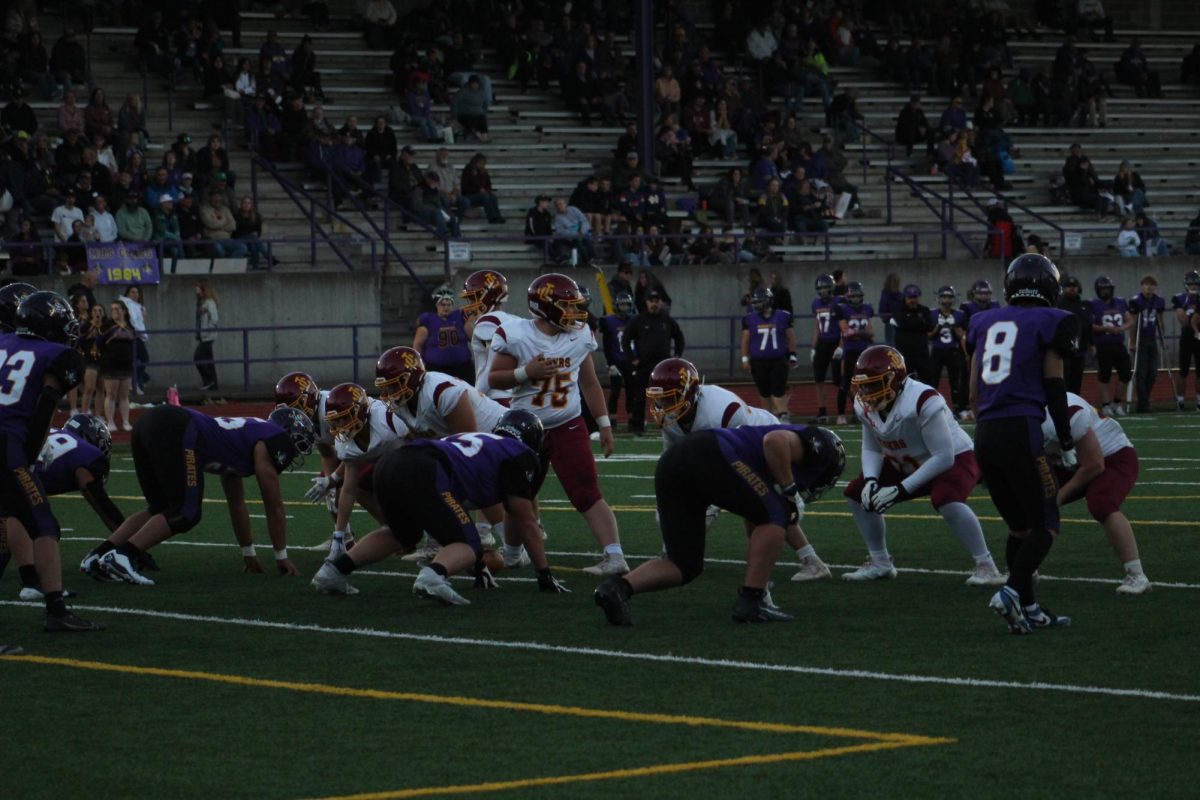Oregon is making history by changing the minimum wage rate with one of the nation’s first three-tiered bill.
The current Oregon minimum wage is $9.25. In July of this year, minimum wage will be increased throughout the state, as a three-tiered bill passed by Governor Kate Brown. Senate Bill 1532 entails that in non-urban areas, like Coos bay, minimum wage will increase to $12.50, midsize counties, such as Eugene and Bend to $13.50, and for urban areas, like Portland to $14.75, by 2022. Wages will be raised by small increments over the next couple of years.
Senior Mackenzie Stueve said she thinks the three-tier aspect is appropriate for Oregon.
“It’s appropriate to give people a wage that reflects the cost of living that applies to them,” Stueve said. “It costs a lot more to live in Portland than in a smaller city. I think that it’s fair.”
Minimum wage has been a hot topic debate since enacted by President FDR. The debate commonly circles the same few points: small businesses, the needs of the impoverished people and increased inflation. The silent question is whether or not the minimum wage is supposed to be a wage for those learning job skills in order to climb the job ladder, or be a livable wage to cover the bare necessities of citizens.
Economics teacher Chad Scriven said he does not agree with the idea that minimum wage will be beneficial.
“The idea that you can just mandate people’s pay, isn’t necessarily going to help them,” Scriven said. “The reality is you can’t expect people to live on minimum wage.”
If intended as a learning wage, the pay should be an incentive to climb up the ladder and achieve a better wage, according to The Heritage Foundation. By this outlook, it would create a work ethic so people would work better. However, the increase in minimum wage takes away that incentive.
Senior Jesse Golder sees minimum wage as a starting place.
“Minimum wage is meant for people to start a career path, to use it as a way to work your way up,” Golder said.
If intended as a living wage, it is implied that one could afford their everyday livelihood based on that wage alone. Stueve said she agrees that people should be able to sustain themselves on minimum wage
“Anyone should be able to support their family minimally, no matter their education,” Stueve said.
However, 3.9% of Americans, and 40% of undergraduate students working under the federal minimum wage, were employed in minimum wage jobs as of 2014, according to United States News & World Report.
Minimum wage did not cause the inflation of the cost of living initially. Not raising the minimum wage is what escalated this problem, according to the Congress Research Service (CRS). The CRS reported, in 1968, the minimum wage and cost of living, also called purchasing power, were equivalent to each other. Later, in the two terms of Ronald Reagan’s presidency (1981-1989) the minimum wage was not increased as inflation increased, causing an after-effect of minimum wage falling behind its real value. In the 2014 State of the Union address, President Obama said the minimum wage, nationally, is 20% less than the minimum wage from when Reagan was president.
“Inflation comes about when there’s too much money in circulation,” Scriven said.
Before the new bill was in place, Oregon had the eighth highest minimum wage in the country. Nationally, the minimum wage is $7.25. According to the State of Oregon Employment Center, Oregon’s purchasing power outperforms the nation. Nationally, the United States purchasing power decreased by 11%, but Oregon’s has increased. Oregon’s purchasing power fell by $2.50 in the 1980s and due to raising the minimum wage above the federal wage, balanced itself out.
The many problems of raising minimum wage can be reduced to three main points: a strain for small businesses, an increased cost of living and “undeserving” workers. Small businesses are not always able to afford raising the minimum wage. According to Golder,by increasing the minimum wage, it can shorten labor and cause layoffs, not only putting people out of work, but also less people do the same amount of work as before.
“It’s hard to justify having a lot of employees and paying so much,” Golder said. “Layoffs will benefit the employers of the business.”
Increasing the minimum wage will likely result in increased prices of goods and services. Currently, local fast food restaurants have already begun to adjust prices to accommodate the new law, according to local fast food managers. Minimum wage causes prices to increase for everyone whether or not their wage actually increases.
“In the five or six years it will take to balance out, I won’t be spending as much anyways,” Scriven said.
Minimum wage increases are supposed to benefit the workers, reduce poverty and increase economic activity. According to Scriven, the benefit to increasing the minimum wage is that it puts money back into the pockets of workers, allowing them to possibly move themselves out of poverty or the lower class. By money being put back in the pocket of the people, they will turn around and spend it, creating economic activity. Minimum wages help lower-skill job workers make an honest living. Stueve said she feels it is morally ethical to pay the wage for people.
“By increasing the minimum wage, the people have the ability to spend money. It may not help in the short term, but it will help in the long term,” Stueve said. “It will make it more sustainable.”






















